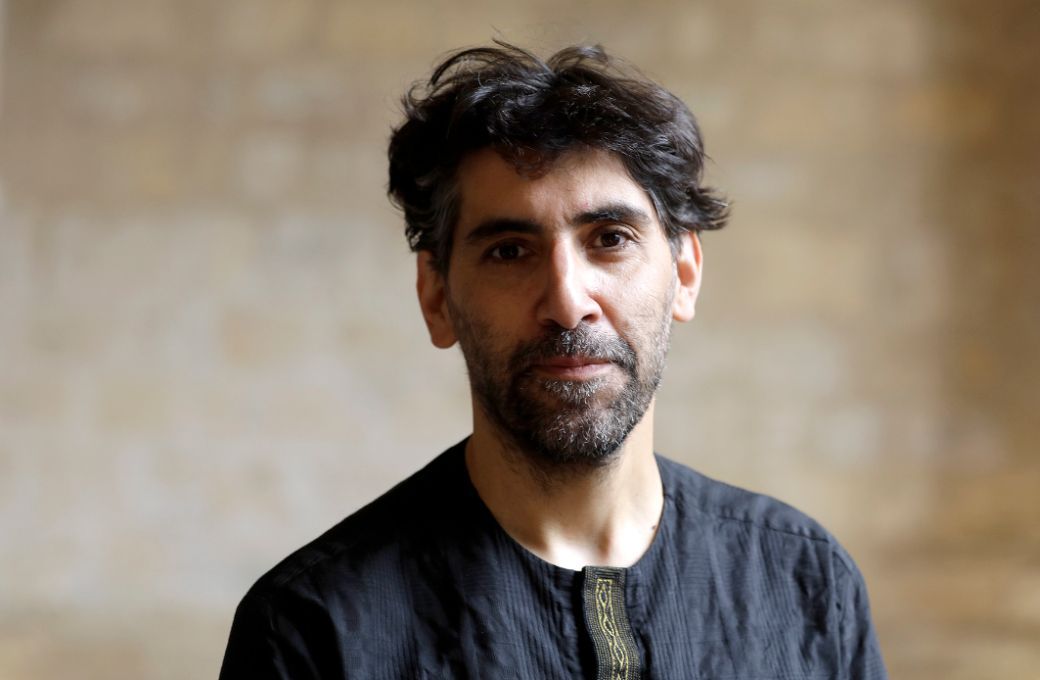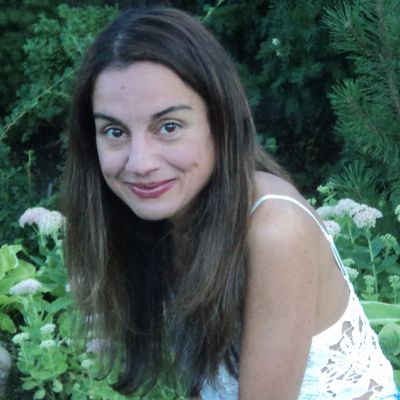The people of this world are like three butterflies in front of a candle’s flame. The first butterfly went close and claimed to have found the meaning of love. The second got much closer, burning its wings, claiming to have understood the pains of love. The third aimed directly for the flame and became consumed by it. It turned into the colour of the flame and became one with the beloved.
Multi-instrumentalist and composer, Keyvan Chemirani recounts this parable, attributed to the 12th-century Persian Sufi poet, Attar, as we discuss his forthcoming project Sufi’s Saraband at La Cité Bleue in Geneva. I myself remember the image of the butterfly and candle on covers of many of my school notebooks in Iran, and in fact these metaphors and symbolisms are intertwined with the very being of any Iranian.

But Chemirani, born in Paris to a French mother and Iranian father, is surprisingly reluctant to make any claims based on his Iranianness. And that’s not the only thing he is modest about. Joining me from his home in Montreuil, in the suburbs of Paris, he comes across as someone I have known for years. Immediately switching to tu (the familiar address in French), he asks me about my background and beams when he finds out that I was born and bred in Tehran. Of his own family, he tells me: “our Iranianness was through my father and the way he lived his life in our home in the South of France. So his way of life was all we knew about Iran”.
It was only years later that Keyvan, his percussionist brother, Bijan, and their father, Djamchid, a renowned master of zarb (or tombak, Iranian goblet drum), visited Iran for a film about the family. Yves de Peretti’s documentary film, Hâl (the Persian/Arabic word for state of ecstasy and spiritual elevation) follows the Chemiranis as the father, who had moved to France in the 1960s to study mathematics, returns to Iran and introduces it to his two sons.
“Papa was very secretive and probably that was one of the main reasons that my brother and I started learning zarb with him. As soon as we started, he was very generous at transmitting this culture.” Chemirani also remembers his father’s strong but deeply personal faith. “Nowadays, there is such a prevailing anti-Muslim wave that whenever I am interviewed, I insist on saying this: my father was a Muslim; my mother was Catholic. And they lived together in love for a long time. If you have love, there is nothing that prevents people from different religions to live together”.
This peaceful plurality and co-habitation have informed Keyvan’s own music and music-making. Despite his main instruments – the zarb and santur – having deep connection to Persian traditional modal music, Chemirani is interested above all in bringing together East and West, old and new. “I had this great fortune to have at home a great master of percussion who transmitted the elements of this language to us. These are what nourish me. My aim is to enrich myself from this music but also from other musics, from Baroque to jazz to flamenco”.
“I never chose my path”, Chemirani says. “It was the path that shaped me. What I want to say is that the human encounters are sometimes much more important than musical ones.” One of Chemirani’s collaborating musicians in Sufi’s Saraband is French lutenist Thomas Dunford. “We had an instant connection, a coup de foudre,” he says. They first met in a project led by Argentinian conductor, Leonardo Garcia-Alarcón and Cappella Mediterranea, performing the oratorio Il Diluvio Universale by 17th-century composer Michelangelo Falvetti. Inspired by the composer’s own Sicilian pluralist environment, Garcia-Alarcón invited Chemirani and his Persian percussion to join the ensemble, where Dunford was also a performer.
Collaboration with Baroque musicians also allowed Chemirani to notice the affinities between “oriental” and Baroque musics. “Of course there are a lot of differences. The verticality and harmony of Baroque have no place in modal oriental music. But the softness and warmth of the instruments, and the importance of ornamentations and improvisation were all in common”, he explains.
He clarifies that he never intends to “denaturalise” music. “I am not going to ask a Baroque musician to phrase in the way that an Iranian or Indian musician does; that makes no sense. Instead, I love to have these musics play together as if in a mirror game, while keeping their uniqueness and authenticity.” He found ideal partners in Dunford and the harpsichordist Jean Rondeau, with whom he created the trio Jasmin Toccata.
His current project, Sufi’s Saraband, to be premiered in Geneva in October 2025, follows on organically. It features the recently formed Modal Experience Ensemble, a shape-shifting group comprising of a few core musicians and regular invited guests. “I thought it would be great to have melodists from oriental music but without being geographically too centred on one area.”
As the title promises, the programme sets to music and dance the poetry of the Sufi poet, Mawlānā Rumi (1207–1273). “The message of these great Sufi poets seems really important today. These were people who had connection to the sacred but with a great philosophy of liberation; who else but Rumi? In the end, what felt most urgent for me was to have this philosophy of love. More than anything, what we need today is love.” He laughs suddenly, as if hearing his own words. “When I say it like this it sounds clichéd, no? But it’s true.”
The other featured poet is the leading female Persian modern writer, Forugh Farrokhzad (1934–1967). Farrokhzad’s poetry was pioneering in its openness about female sensuality and sexuality. While compared to Rumi’s spirituality, Farrokhzad’s verses represent a different facet of love, Chemirani decided to include them not least as a nod to the Woman-Life-Freedom movement in Iran. “Forugh was the first feminist. I wanted to open a path which is a bit more contemporary and something that resonates with a path towards a different liberty.”
Chemirani has no doubts when it comes to artists’ engagement in contemporary matters. “There are so many asking whether an artist should be political. I say there should be no question. Of course artists should be political. It makes no sense to make music on a cloud. Of course one should be devastated by what is going on in Gaza, and one should call it out. Not saying anything is wrong. Not taking a position today is taking a position, and not in a good way.”
“I wouldn’t say the programme [of my latest project] is political,” Chemirani adds. “But of course one has to be in touch with what is happening in the world, including politics.” I ask him about the prominent place of women in Sufi’s Saraband; both the singer and dancer are female. “The first thing that interests me is humanity, rather than ideology or gender. I work with humans that touch me. And if they are women, then so be it.”
The dance element of the programme re-enacts samā, often referred to as the whirling dervish. And even more than dance, samā is a means of meditation and spiritual transcendence. “I thought it was great to have a woman do that dance. When Rana [Gorgani] does it, it creates such a force.”
The project’s singer, Aida Nosrat, has previously worked with Chemirani in the revival of his opera Negar, in Montpellier, which focuses on two Iranian women caught in a love triangle within the oppressive conditions of the country. In Sufi’s Saraband, Nosrat will be singing words of Rumi and Farrokhzad. “She is someone with great generosity and flexibility. She is also Iranian, so she knows the language. Even more than Forugh, Rumi has worked hugely on the rhythm of the language. I really wanted to have an Iranian who understands this rhythm.”
Words and movement also come together in a technique he has called “musicalligraphy”, which involves video projection of Persian calligraphy of some of the key words from the poems. “There is this dance and aesthetic of the qalam [a Persian reed pen] on the paper. It is another way of penetrating Persian culture.”
I gather my courage to ask the question that has been in my head from the start, especially as throughout our conversation Chemirani has mentioned authenticity more than once. Is he ever accused of appropriating a culture to which he has no right by birth? Can he have any claim to Sufism and Rumi? After all, Rumi’s poetry is challenging, even to a native speaker, which he is not.
To my surprise, he lights up. “I love this question! You can’t imagine how often this question of authenticity comes back to me. One thing that is really important for me is that one must never essentialise people. For me it’s gravely wrong. We are complex; we are multiple. We have characters that are contradictory. We are contradictory. And we are attracted by things that are in contradiction… Intercultural dialogue is neither this nor the other and doesn’t even pretend to be either/or, or even between the two…
“When we speak of authenticity, for me the importance is not being authentic to Rumi. It’s our authenticity, our sincerity. It’s we who should be authentic to ourselves. We shouldn’t do something because it works. We should do it because we feel it inside us. In this sense we do have to be authentic.” Hard to think of a more convincing response.
Keyvan Chemirani performs Sufi’s Saraband at La Cité Bleue in Geneva on October 28th–29th.
See all upcoming events at La Cité Bleue.
This article was sponsored by La Cité Bleue.


